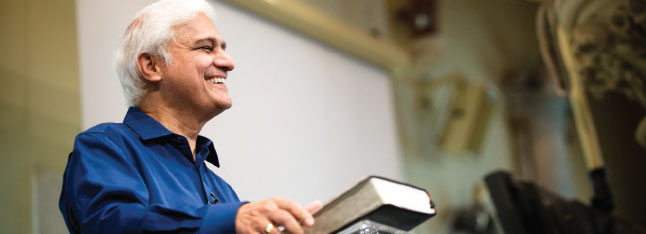Postmodernism culture
by Prasidh Raj Singh
If we understand where postmodernism is coming from and where it is going, we will begin to see its expressions in every area of our culture. In 1984, the year of Orwell’s prediction, Francis Schaeffer stated, “Finally, we must not forget that the world is on fire. We are not only losing the church, but our entire culture as well. We live in a post-Christian world which is under the judgment of God.” Ravi Zacharias, himself Indian born, observed, “What’s happening in the West with the emergence of postmodernism is only what has been in much of Asia for centuries but under different banners.” It is the postmodernist himself who wants to convince us that culture is neutral and has no moral connotations. But that is because a non-Christian culture does not believe in morality, at least to the extent that anything we do, think, say or observe has anything to do with right and wrong. Morality is relegated to the spiritual level which can only be highly personal and certainly not judged by our actions. Gene Veith comments, “For all its talk about culture, postmodernism lacks culture since the traditions, beliefs and morals that define culture are all disabled.”
Full essay: http://postmodernopenings.com/wp-content/uploads/2011/04/6-Consumer-Culture-and-Postmodernism.pdf
Interview with Ravi Zacharias
by Richard L. Schoonover, Associate Editor of Enrichment journal.
Schroonover: What is destroying the moral and spiritual foundation of today’s society?
Zacharias: I believe a convergence of many factors has taken place. Much of education in the 1960s came unhinged from any moral absolutes and ethical values, to wit the book Excellence Without a Soul by Harry R. Lewis. We have seen this happening the last 40 years. There have been many voices alerting us to this. But more than just a philosophy took over; a mood took over.
First, secularization generally held that religious ideas, institutions, and interpretations have lost their social significance. People liked the idea of a secular society and a secular government. But in terms of moral values and ethics, they never checked into the internal assumptions of secularization that made it wide open to almost any view on any subject. Beginning in the 1960s, the moods of secularization ultimately led to society’s loss of shame.
Next is pluralization, which sounds like a practical and worthy idea; and in many ways, it is. In pluralism you have a competing number of worldviews that are available, and no worldview is dominant. But smuggled in with pluralization was the absolutization of relativism. The only thing we could be sure of was that all moral choices were relative and there was no point of reference to right and wrong. This resulted in the death of reason.
Last is privatization, which is an accommodation to the religiously minded. If secularization and pluralization were going to hold sway, what does society do with the large number of people who are spiritually minded?
Being spiritually minded was okay as long as people kept their spiritual beliefs private and did not bring them into the public arena. The irony of this was the fact secularization – which had its assumptions on absolutes and anything of the metaphysical nature – was allowed into the public place. In fact, its very trust was to bring it into the public place. But anyone who believed in a spiritual Essence, an Ultimate Reality, and the fact there were transcendent absolutes that needed to be adhered to was told to keep those beliefs private. That ultimately paved the way for the loss of meaning.
These three moods — secularization, pluralization, and privatization — brought about loss of shame, loss of reason, and loss of meaning. How was this authoritatively pontificated in the social strain? This is when philosophy stepped in, the moralizers against morality came in, and political correctness came in. These gave society some parameters that allowed it to expel the moralizing from outside the secular realm.
As a result, everything became pragmatic. Philosophers and naturalists stepped in. In this new century, we have lost all definitions of what it means to be human, and what sexuality, life, and the home are all about. We are on the high seas, battling the storms of conflicting worldviews without a compass.
Interview: http://rzim.org/just-thinking/defending-christianity-in-a-secular-culture








